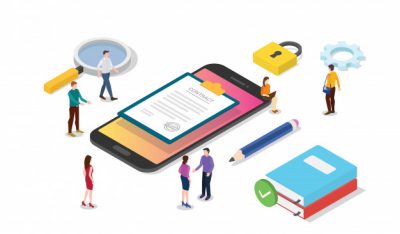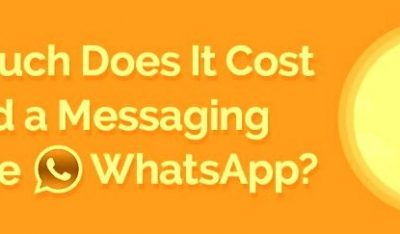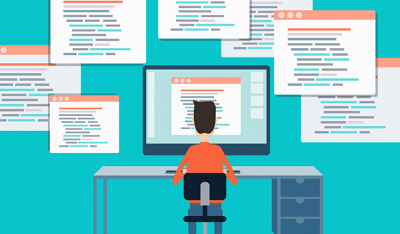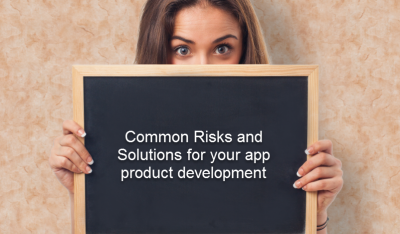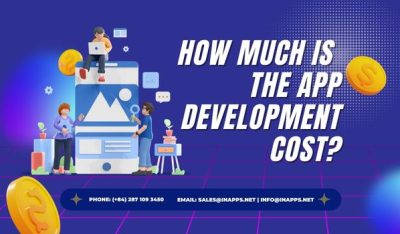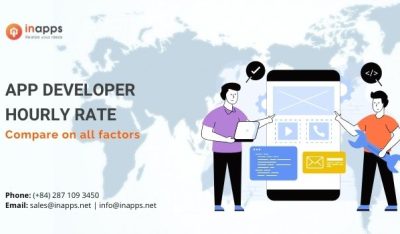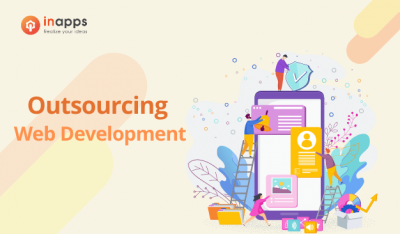- Home
- >
- Mobile apps development
- >
- Healthcare mobile app development | What is, Cost, Use cases,…
Healthcare app development is a difficult task requiring extra attention to analysis, creativity, and solutions. A solution that benefits physicians, patients, nurses, prescription vendors, administrators, and lab technicians. This guide is specifically designed for you to make your own.
This guide will outline everything related to developing a mHealth digital product: how to find and test an idea, more about the business side of a medical startup, the legal rules you must consider ahead of time, and technical aspects of development. Let us get started right away.
If you prefer images over text, skip to the bonus infographic “How to Build a Successful Healthcare App.”
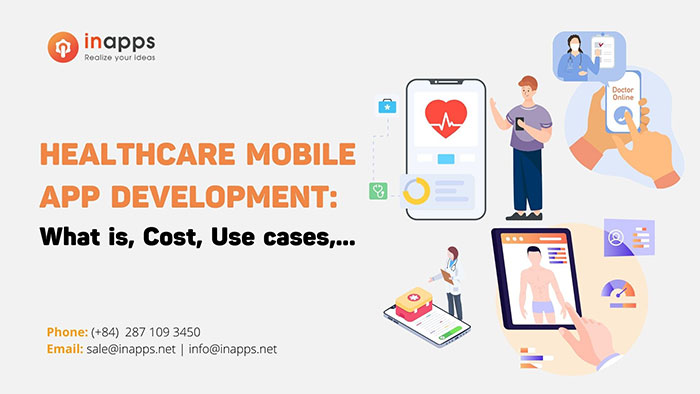
What is healthcare mobile app development and when is use?
What is Healthcare App Development?
Healthcare app development is creating a mobile app that allows users to submit and track their health issues in real-time.
Medical services, hospital experience, electronic health records, or insurance claims, for example.
Healthcare mobile app development serves a variety of functions.
- For Doctors. Patient tracking and monitoring, appointment scheduling, and staff management will all be aided by a doctor’s application.
- For Patients. Patients require digital health solutions to book appointments, communicate with their doctors, and even receive recommendations.
Mobile healthcare app development services are available for purchase. Take a look at the statistics for wellness app development:
- Apple’s App Store contains 45,478 healthcare apps.
- On the Play Store, there are approximately 43,285 applications.
- In 2019, the global mHealth domain received $13.7 billion.
- According to an Accenture survey, approximately 75% of patients understand the significance of health-based applications.
- By 2026, the telemedicine application market will be worth $17.14 billion.
Various digital healthcare and medical apps are available today, each with its purpose and functionality.

Why should you use healthcare apps?
What is the Difference Between a Health App and a Medical App?
A health app differs from a medical app in that health apps aim to provide health-related services for all types of smartphones and communication devices.
On the other hand, medical apps are software on a mobile device that users can use to interact with regulated medical devices.

Healthcare software allows users to receive medical assistance remotely, simplifying their lives and allowing them to monitor their health conditions more effectively.
For example, I am Using tracking or fitness apps.
Patients aren’t the only ones who can benefit from health information management software. A variety of platforms assist medical professionals in storing data, exchanging opinions with other experts, sharing the most recent ideas and practices, and much more.
Now that we’ve established the distinction between health and medical app development services let’s look at the various healthcare apps.
What Types of Healthcare Apps Are There?
For the development of a healthcare app, you have two options. Some mobile healthcare apps are only for doctors, whereas others are for patients’ development.
Doctors use these medical apps for patient management, staff training, and other administrative tasks.
Patients’ healthcare mobile apps offer health management and patient monitoring services.
There are two types of healthcare mobile app development services that we provide:
- Professional remedies
- Patients’ Applications

Types of healthcare mobile app development services
Examine these types of healthcare apps and their implementation in greater detail.
Type #1: Professional Solutions
There are an increasing number of healthcare applications that allow doctors to monitor the health of their patients remotely.


Type #2: Application for Patients
Thanks to many different sensors on modern smartphones and wearable devices, patients can share health data with doctors, making patient care and diagnosis more accessible, faster, and more accurate.


Our experience in developing healthcare applications has resulted in remarkable success. We can assist you in developing a mobile healthcare app that is designed to provide an excellent user experience.
Use Cases for a Healthcare App
It is preferable to determine the type of application that meets your needs and purposes to offer a relevant and in demand product. To create the most effective healthcare application, you must monitor and implement industry trends.
Today’s healthcare market provides a wide range of healthcare app use cases.
Some of the most popular can be found here.
Use Case #1: Telehealth & Telemedicine
Telehealth and telemedicine software solutions that connect a doctor and a patient are in high demand today.
Such applications have grown in popularity during the COVID-19 pandemic and social isolation.
These technologies enable medical specialists to provide remote medical services, communicate online, and provide more efficient medical care.
Use Case #2: Electronic Health Record (EHR/EMR)
EHR/EMR solutions allow you to track, store, update, and collect all patients’ medical information on a single platform.
This saves time, eliminates manual errors, and allows patient data to be exchanged between institutions.
Use Case #3: Health Informational Exchange (HIE)
Vital signs such as body temperature, blood pressure, heart rate, and so on must be monitored to make an accurate diagnosis and maintain patients’ well-being and quality of life.
The HIE solution enables easy and quick measurement of a patient’s vital parameters using only a smartphone’s authentication.
As a result, the system can transfer data more quickly, and doctors can easily monitor and analyze the necessary data.
Use Case #4: Built-in diagnostic systems
The system collects and processes data from embedded and IoT devices that are integrated with EHR platforms.
Doctors can easily visualize, analyze, and diagnose remote patients’ conditions, track progress, and determine treatment.
Use Case #5: E-prescribing (eRx)
The E-prescribing system in the electronic health ecosystem allows you to create, store, and send prescriptions using the medical information system.
One of such a system’s advantages is that it reduces errors during check-out and saves time for both the doctor and the patient.
Use Case #6: RCM & Medical Billing
The RCM (Reliability-centered maintenance) solution includes a medical billing system that provides for EHR (Electronic Health Record) and PM (Practice Management) services.
It means you can easily switch between apps without signing in to each one separately. It also means that you can access patient records and pay bills while you’re on the go, rather than just in the office.
This solution relieves users of investing in costly hardware or worrying about IT, data encryption, and security compliance.
More important is how to develop such an app and how much it will cost.
How Much Does It Cost to Develop a Healthcare App?
The number of features and capabilities determines the final cost of developing a wellness and health mobile application it will provide.
Before we get into the cost, let’s look at the team requirements. You will need the following items to create a healthcare mobile app:
- Front End Developer
- Back End Developer
- DevOps
- Business Analyst
- Compliance Expert
- UI/UX Expert
- Project Manager
- Quality Assurance
Our healthcare mobile apps for patients create services that are specifically curated to assist you in getting the most out of the product.
An example of patient-centric on-demand doctor medical software development is provided below.
As a result, the cost estimation will be based on integrating features from the same viable product.

We can calculate the cost based on the number of hours spent developing the mHealth app.
You can hire one of three development services to create a mobile healthcare app.
- Hire an in-house team
- Freelancers
- Outsource
An in-house team will provide a high-quality product among these options but may be prohibitively expensive.
As a result, hiring and maintaining an in-house team is not cost-effective when you are just getting started. It could charge between $100 and $200 per hour.
The second option is to hire freelancers from all over the world. That is another excellent option that will save you money.
However, when working with freelancers to develop your application, quality is not guaranteed. So, what is the best way to go about creating a medical application?
It is done by hiring an outsourcing company from Ukraine with the most competitive rates. When comparing service prices and developing a healthcare mobile app, Ukraine has the lowest hourly rates.
The average hourly rate for application development in the healthcare domain is $40.
Here is an estimate of the total cost of a healthcare app development service.

You’ve got it: the lowest possible healthcare application development cost in record time without sacrificing quality.
Now that we understand how to calculate the cost of a healthcare app let’s look at the steps of healthcare mobile development.
How to Develop a Healthcare App?
The following is a step-by-step guide to developing a healthcare mobile app.
We will take a more in-depth approach to understand and implementing:
- Business Idea Validation
- Features Integration
- Tech Stack
- Hiring a team
- Design Flow
- Create an MVP
- Cost Estimation
Among these considerations are some security requirements that must be met when developing any medical app.
When describing the healthcare mobile development process, we can identify the following steps:
- Finding an idea
- Market Research and Customer Feedback
- Validation of Business Hypotheses
- Build an MVP
- Design process

How to build healthcare mobile application development
Now let’s research each of these steps in detail.
Step 1: Finding an idea
A problem and its solution must guide the development of a healthcare mobile app.
Aside from the proof of concept, prototyping, and MVP phases of an app, idea validation determines its viability and interoperability.
Begin by gathering your internal resources. Then, before engaging in any mobile healthcare application development services, determine the market need.
When you’ve come up with an idea, it’s time to see if it’s viable. And this is a four-step procedure.
- Market research of customers
- Development of healthcare app idea
- Testing
- Validation
Let’s find out more details about it.
Step 2: Market Research and Customer Feedback
We will be validating an idea for a digital health solution for people suffering from heart disease.
The goal is to assist them in locating doctors, medicines, vendors, and information and keep track of their records, create case studies, and communicate.

Step 3: Validating a Business Hypothesis

Step 4: Build an MVP

Step 5: Design Process
Any type of healthcare application development must include design elements like UI/UX, Interface, Screen Rotations, Button Placement, etc. A well-designed and developed healthcare application serves as a draw for new visitors.
Given the market’s competitive nature, a good design can make or break the deal. (Learn how much it costs to design an app.)
Choosing a Healthcare App Development Company: Tips & Things to Pay Attention to
We have an idea for a mobile application, which we will develop step by step. We were familiar with its market positioning and customer base.
And we also discussed the design of the digital wellness solution.
Let’s get started on the healthcare application’s MVP development.
Tip #1: Data Security Requirements
Data security elements will be highlighted in specific areas of a health-specific solution.
This is done to reduce the risk of the tracking app exposing patients’ private information.
As a result, the development of medical solutions necessitates adherence to various legislation to secure patient data.
As a result, each healthcare application is responsible for developing a secure platform.
We will address the security concerns of four geographic areas:
- USA
- Canada
- United Kingdom
- European Union
Let’s find out more.
The USA
The United States places a high value on its citizens’ privacy. It is visible in the HIPAA Act of 1996’s privacy guidelines.
Aside from that, the HITECH Act, CCPA, and NIST must be followed. So, in addition to developing your healthcare app, keep the following regulations in mind.
Canada
Canada also establishes some important precedents for the development of healthcare apps.
Several regulations have been enacted at the federal and local authority levels, with PIPEDA having federal status.
The UK
Although the GDPR guidelines apply across the EU, the United Kingdom has its own healthcare mobile app services developments.
Aside from that, the Data Protection Act of 1988 is essential for mobile app development for healthcare.
The EU
The GDPR outlines the requirements for developing a medical app in the EU.
Aside from that, you must follow the NIS and ISO certifications when developing your application.
Tip #2: Integrations
UI/UX, Design, Interface, Speed, and all other factors contribute to developing a loyal user base.
Find the critical features for MVP development of patient-facing healthcare apps. These functions and features should be your top priority when developing the solution.
Make a Profile: During the signup stage, you initiate the creation of an account within the healthcare application.
Allow patients to enter their personal information (name, gender, age, etc.).
Allow them to add their health biomarkers and assist them in keeping track of them.
Files Storage:
Hospitals must develop an EHR system for file storage and safekeeping. Allow users to save their healthcare data and files during the app development.
Files can contain anything from prescriptions to x-rays, reports, and whatever else you can think of.
Furthermore, healthcare application development allows users to keep track of their diet and nutrition.
Allow them to include the daily calorie that addresses the underlying condition.
These services and features in your healthcare mobile app development will assist you in attracting more users.
Geo-Location:
Without geo-location, any healthcare mobile app catering to patients is incomplete. When developing a mobile healthcare app, helping patients find a doctor is one of your primary services.
Users will be able to find cardiology by embedding this.
You can also apply filters based on distances from their current location.
- Specialty
- Experience
- Private Practice or Institutional Doctor
Use Google Maps for Android phones, and integrate the app with Maps for iOS.
Appointments: This advancement in healthcare apps allows users to schedule doctor appointments.
To confirm, the same medical app must be linked to the doctor’s itinerary in this development.
Aside from doctor appointments, you can also assist the user in scheduling lab tests. Allow them to schedule appointments with their therapists, for example.
The key is to provide “something extra and useful” to the patients.
It is a competitive market, and your monitoring app development strategy should consider various healthcare aspects.
Chat or communication is yet another appealing feature for healthcare app development. You must enable your users to communicate with doctors and physicians directly from the application.
You will need to integrate your app with the doctor’s software or platform.
Perhaps you could use an API for this integration. Our healthcare mobile solution development and services expertise can advise you on the best course of action.
One of the advanced healthcare app development features is video conferencing or telemedicine.
The user base for your mobile healthcare app may find it difficult to visit the doctor; thus, the development of this feature may be beneficial.
Users can use this medium to conduct one-on-one sessions with their doctors or physicians.
Allow the users to pay for:
- Doctor’s Consultation booking
- Video conferencing
- Prescriptions
- Lab tests
- Diet Charts
You can improve it even further by incorporating a payment system into your mobile healthcare app—more on this in a moment.
It is also here that empathic design practices must be followed. Your healthcare app development must adhere to proper button placement because the users are unfamiliar with video conferencing and other similar technologies.
Tip #3: New Age Development Features
Because of the introduction of digital technology, the health care domain is transforming.
The following are the advantages of incorporating cutting-edge technologies into the development of your healthcare application:
- Higher Customer Attraction
- Analysis
- Decentralization
- Better speed
Consider a few options for developing your healthcare application using cutting-edge technologies.
Artificial Intelligence

Virtual Reality

IoT (Internet of Things)

Blockchain

Tip #4: Technology Stack for Healthcare Mobile App Development
As we move forward with development, we will talk about the tech stack for a medical app. The use of the appropriate technologies does play a role in the success of healthcare application development.
Our healthcare mobile app development experts use cutting-edge development tools and technologies.
We will divide the tech stack division for mobile app development in healthcare services into two parts to better understand it.
Backend Technologies

Frontend Technologies

Now Over to You
Healthcare application development may not be appropriate for all developers.
That is why InApps has a team of experienced developers working on your project. Our healthcare mobile app development services have been carefully selected to assist you in entering the market with the best product.
Our goal is to create a one-of-a-kind solution for your customer base and clientele.
That is why we take practical steps toward developing a health application beginning with the discovery phase.
We have experience developing HIPAA-compliant health-based mobile applications or healthcare apps that are tailored to your specific requirements.
The MVP version of the medical application development includes the following features:
- Record Maintenance (EHR)
- Profile Setup
- Signup and Login
- Geo-location
- Scheduling
- Appointment Booking
The niche development of your healthcare application, on the other hand, is highly subjective.
From the target audience to the market competition, we thoroughly understand the entire market landscape.
Contact us today to learn more about how we can assist you in dominating the market with an incredible product.
Contact us today to learn more about how we can assist you in dominating the market with an incredible product.
List of Keywords users find our article on Google:
[sociallocker id=”2721″]
| healthcare mobile app development |
| healthcare mobile app development company |
| healthcare application development |
| healthcare app development |
| healthcare mobile application development |
| healthcare mobile app development services |
| healthcare mobile app developers |
| health mobile app development |
| healthcare mobile app development companies |
| develop a healthcare app |
| healthcare app development company |
| how to develop a healthcare app |
| mobile healthcare application development |
| medical app development |
| mobile healthcare app development |
| healthcare mobile app developer |
| digital health app development |
| mobile app development for healthcare |
| medical mobile app development |
| app development for healthcare |
| healthcare mobile apps |
| healthcare app development services |
| healthcare app developer |
| mobile healthcare software development |
| “what features should an mvp have” |
| mobile app development company |
| mobile app development |
| healthcare app development cost |
| health app development |
| mobile health app development |
| mobile health application development |
| mobile health app developers |
| healthcare mobile crm |
| wawa nutrition |
| telemedicine app development company |
| healthcare mobile app platform |
| mobile app development healthcare |
| build healthcare app |
| healthcare application development company |
| mobile application development |
| healthcare mobile app companies |
| medical mobile app development company |
| mhealth app development services |
| doctor appointment mobile app development company |
| on demand medicine delivery app development |
| develop healthcare app |
| health care application project |
| app development companies |
| medical mobile application development |
| mobile app use cases |
| medical mobile app developer |
| healthcare web app development |
| types of healthcare apps |
| remote medical billing jobs |
| ui health care |
| healthcare app development company uk |
| offshore outsourcing solutions |
| telemedicine app developers |
| teladoc like app development |
| telemedicine app development services |
| medicine delivery app development |
| healthcare mobile app development process |
| healthcare application development services |
| medical app development services |
| medical app ui design |
| telemedicine software development company |
| fintech app development cost |
| medical application development |
| medical app development company |
| app development healthcare |
| create a healthcare app |
| on demand medicine delivery app |
| on demand app development company |
| healthcare apps development |
| healthcare mobile app |
| saas based medicine delivery app |
| build a healthcare app |
| healthcare ios app developers |
| cost to build a healthcare app |
| one touch emr |
| cost to develop fintech app |
| on demand delivery app development company |
| medical app developer |
| mvp find a doctor |
| mobile medical app developers |
| are remote sensing technicians happy |
| build a secure medical app |
| what is an app in healthcare |
| healthcare mobile applications |
| hire dedicated healthcare app developers |
| digital health app developer |
| mvp maintenance software |
| healthcare application development service |
| saas solution for disease tracking |
| mhealth app development solutions |
| flutter ecommerce app |
| ui healthcare |
| remote mobile app developer jobs |
| wawa app |
| on demand medicine app |
| on demand mobile app development company |
| enterprise mobile app development company |
| “looking to develop a mobile app” |
| healthcare app vendors |
| health application development |
| health care app development |
| wawa pay rate |
| cost of developing a health app |
| hire medical device development freelancer |
| wawa menu prices |
| medical mobile development |
| healthcare mobile application |
| mvp solutions |
| remote primary health care manuals |
| app development for doctors |
| full stack developer hourly rate |
| healthcare app company |
| price of hospital mobile app development |
| healthcare app development companies |
| how much does wawa pay an hour |
| healthcare app developers uk |
| mobile virtualization platform (mvp) market |
| mvp healthcare |
| cardiology emr billing services |
| healthcare website design inspiration |
| landscaping appointment setting software |
| wawa application |
| business travel itinerary template |
| best app developers |
| fitness app developers |
| custom application development |
| “app development company” |
| quality assurance hourly rate |
| wawa hourly pay |
| patient app developer |
| healthcare-app-development-services |
| hire medtech market access freelancer |
| accenture qc |
| mobile app development jobs near me |
| how much does wawa pay |
| healthcare development services |
| wawa hiring process |
| mvp health care jobs |
| ios medical application development |
| mobile app developers for healthcare |
| are medical records technicians happy |
| doctor app development |
| front end developer hourly rate |
| accenture medical billing |
| freelance test-driven development experts |
| advanced medical integration |
| david lam linkedin |
| best healthcare app developers |
| mobile software development |
| patient estimation software |
| ux design process case study |
| cloud based mobile integrated healthcare software |
| outsource appointment scheduling medical office |
| hire google maps developers |
| iso 527 |
| mobile apps healthcare |
| flutter app templates |
| mobile development |
| hire flutter freelancers |
| hourly keyword monitoring tool |
| mhealth app development company |
| one touch emr pricing |
| medical doctor website design templates |
| e prescription app development |
| remote medical billing |
| e-learning for healthcare |
| outsource cardiology billing |
| rcm healthcare services |
| mobile app healthcare |
| offshore catering job |
| health app developers |
| flutter in app purchase |
| dedicated flutter developers in canada |
| hospital management software cost |
| mvp health care address |
| public health tracking saas solutions |
| healthcare policy management software |
| mobile app developers |
| app development firms |
| telemedicine app development in usa |
| mobile app ui design |
| internal communication mobile apps |
| portable staging hire |
| mobile application design |
| app development |
| android app development company usa |
| effective communication in healthcare teams |
| flutter app development |
| app development platform |
| app development software |
| on demand delivery app development |
| “doctor’s data” |
| patient access representative hourly pay |
| calories wawa |
| healthcare mobile apps for patients |
| patient mobile app cost |
| wawa nutrition information |
| post market clinical followupmedtech market access freelancer |
| qc blood pressure monitor precio |
| wawa nutritional info |
| wawa catering menu |
| how much does an x ray tech make per hour |
| nist e prescribing validation tool |
| health application development services |
| wawa hiring |
| health care application development services |
| wawa menu nutrition |
| mobile x ray tech jobs |
| medical device regulatory consulting freelancer |
| rcm health care services jobs |
| how wellness professionals can be ccpa compliant |
| medical instrument design and development from requirements to market placements |
| rcm healthcare jobs in canada |
| hire medical device regulatory consulting freelancer |
| nutrition landscape information system |
| healthcare mobile app design templates |
| medical office design ideas |
| medical app developement |
| what does mvp mean in maintenance management software |
| wawa food nutrition |
| electronic health record a systems analysis of the medications domain |
| hospital app development |
| rcm switch android |
| health system app development |
| healthcare mobile development |
| ecommerce app flutter |
| mvp management maintenance software |
| rcm health care services |
| a project manager has been transferred to a major software development project that is in the implementation phase. the highest priority for this project manager should be to |
| health and wellness email outsourcing |
| health and wellness phone outsourcing |
| medical device development freelancer |
| concept care solutions jobs |
| offshore wearable app making service |
| rcm healthcare travel |
| beginning flutter: a hands on guide to app development |
| application developer hourly rate |
| outline button flutter example |
| xray devops |
| are food product development technicians happy |
| increased requirements for e prescribing and incorporating lab results |
| mobile healthcare software |
| remote and offshore medicine |
| best clinical rotations software for iphone |
| fitness app ux |
| how to build a healthcare app |
| medical app ui |
| neovia financial |
| build healthcare applications |
| how much do lab technicians make |
| mobile healthcare technicians |
| flutter appointment booking app |
| hire post market surveillance freelancer |
| quality assurance game tester salary |
| flutter in app purchase example |
| healthcare saas jobs |
| hourly appointment book |
| hire high charts developer |
| mvp health care provider phone number |
| rcm recruitment |
| hitech filter |
| qa med devices jobs |
| wawa health benefits |
| ats medical billing |
| district federal ho chi minh city |
| hire a flutter developer in canada |
| hospital catering management software |
| medical mobile app developers |
| top app development companies in ukraine |
| flask phone case |
| healthcare app companies |
| hitech outsourcing services |
| how much does a patient care tech make |
| medical billing management jobs healthcare software |
| steps infographic design |
| 3 step process infographic |
| apple healthcare division |
| flutter outline button |
| healthcare consultant hourly rate |
| integration exchange and core admin platform |
| app developer stories |
| flutter booking app |
| hospital authority e learning |
| medical mobile app designer |
| outline button flutter |
| priority partners find a doctor |
| rcm mobile app |
| top app developers ukraine |
| e learning for healthcare |
| how to make a chat app in flutter |
| wawa health insurance |
| healthcare app ui design |
| healthcare ux design jobs |
| hourly recruitment intelligence firm |
| offshore wearable app developing service |
| medical billing jobs healthcare software |
| レイズテック フロントエンド |
| android developer hourly rate |
| appsnet |
| ats healthcare |
| e-prescribing systems market trends |
| flutter in app messaging |
| nist telehealth |
| software testing jobs in healthcare domain |
| application development recruitment |
| global medical solutions recruitment |
| google healthcare api use cases |
| hipaa compliant secure communication comparison |
| hire flask developers |
| hire medical technology freelancer |
| how to build a chat app in flutter |
| mvp primary care physicians |
| project scheduling and tracking software quality assurance |
| wawa mobile order |
| accenture user experience course |
| build chat app flutter |
| healthcare app features |
| medical application development company |
| medical billing outsourcing market trends |
| wawa prices |
| ats for healthcare |
| does wawa take apple pay |
| emr developer guide |
| healthcare quality assurance jobs |
| healthcare quality assurance manager |
| hitech outsourcing |
| mobile app for healthcare |
| mobile integrated healthcare software |
| mvp consulting |
| review generation software doctors |
| signing flutter app |
| building a health app |
| catering menu template |
| chat app ui flutter |
| custom app development for healthcare |
| flutter chat app template |
| health app ui |
| health care app development company |
| healthcare qa jobs |
| hourly rate for healthcare consultant |
| hourly rate for software developer |
| medical app development companies |
| medical practice design ideas |
| mvp healthcare phone number |
| top private duty home care ehr software |
| app store medical apps |
| ats save file location |
| cardiology emr billers |
| flow insurance trustpilot |
| flutter chat app example |
| hire wearables freelancer |
| hourly rate ux designer |
| how to design and develop a mobile health application |
| how to sync fitness wearables with ehrs |
| introduction to game design prototyping and development |
| iot project cost calculator |
| rcm health product |
| flutter food delivery app |
| i touch wearables app |
| mobile application developer recruitment |
| mobile applications in healthcare |
| mvp health plan phone number |
| custom mhealth app development |
| e prescribing software uk |
| business analyst healthcare |
| best healthcare app development company |
| best mobile app development companies |
| medical marketing for doctors |
| top mobile app development companies uk |
| dedicated care management platform for healthcare professionals |
| mobile app development companies in uk |
| top mobile app developers |
| best telemedicine software |
| mobile app development company in uk |
| application development and integration market |
| top mobile app development company |
| best mobile app development company |
| mobile patient records |
| mobile app development firms |
| best telemedicine platform |
| mhealth apps |
| mobile app development companies |
| mobile app development companies in usa |
| communication within the healthcare team |
| offshore software development team |
| healthcare marketing ideas |
| telemedicine app development |
| ux experts |
| examples of communication in healthcare |
| internet of things healthcare applications |
| software development cost estimation |
| food ordering app development company |
| top web and mobile app development company |
| android mobile application development |
| how to improve communication in healthcare |
| cost to build fintech app |
| effective communication tools for healthcare professionals |
| app development course |
| e-prescribing |
| on demand app development services |
| front end app development |
| best android app development company |
| mobile app developers in uk |
| application development company |
| mobile app development services usa |
| android app development company |
| mobile app development services |
| mobile app development uk |
| android software development services |
| mobile app development trends |
| software development company |
| backend development services |
| web development company |
| web development services usa |
| website development services |
[/sociallocker]
Let’s create the next big thing together!
Coming together is a beginning. Keeping together is progress. Working together is success.





